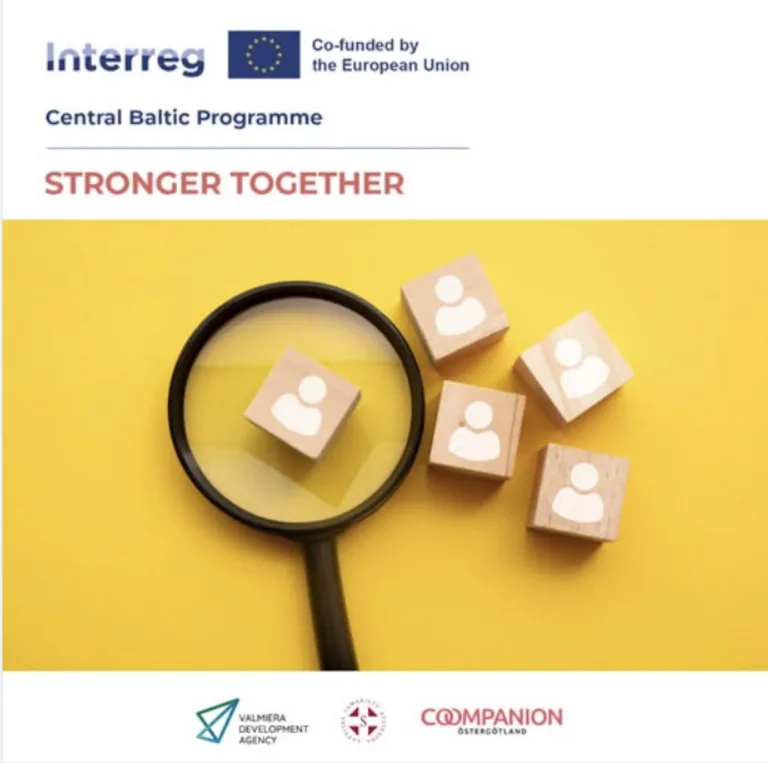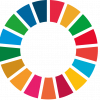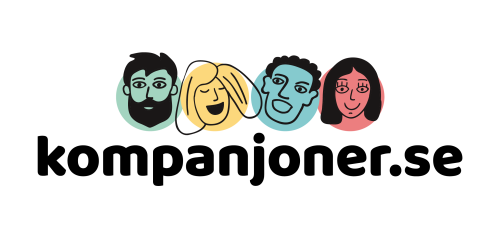Projektet Stronger Together (Stronger together towards a more inclusive labor market) är ett Eu-finansierat projekt, en del av Interreg Central Baltic. Målet med projektet är att arbeta för en mer inkluderande arbetsmarknad genom att uppmuntra arbetsgivare att implementera en antidiskrimineringspolicy i sina organisationer och säkerställa anställning av personer med intellektuella funktionsnedsättningar eller andra särskilda behov. Projektet bedrivs i Lettland och Sverige och kommer att genomföras i samarbete med Samaritan Association of Latvia, Valmiera Development Agency (Lead Partner) och Coompanion Östergötland.
Projektet pågår under perioden 20240501 – 20270430 (36 månader)
Projektnummer CB0300234
Den totala budgeten för projektet är 1 396 403,84 euro, inklusive finansiering från Europeiska regionala utvecklingsfonden på 1 117 123,06 euro.
Budgeten för Coompanion Östergötland är 747 822,28 euro, inklusive finansiering från Europeiska regionala utvecklingsfonden på 598 257,82 euro.
Samarbetsorganisationer i Sverige är bland annat Region Östergötland, Arbetsförmedlingen, Autismföreningen och Attention.
VARFÖR DETTA PROJEKT?
”Med tanke på samhällets åldrande befolkning och den ständigt ökande efterfrågan på arbetskraft inom olika områden på arbetsmarknaden bör varje samhällsmedlem ha möjlighet att komma in på arbetsmarknaden utifrån dennes förmågor och färdigheter. Utveckling för arbetsgivare och anställda kan ske om möjligheter finns för alla att bidra till tillväxten i samhället. Detta är just uppdraget för projektet ”Stronger Together”, nämligen att stödja arbetsgivare och arbetstagare och därigenom säkerställa sysselsättningen av personer med särskilda behov. Aktiviteterna i projektet kommer att bidra till att hitta utveckling för både arbetsgivare och anställda och kommer att skapa möjligheter att komma in på arbetsmarknaden för personer i samhället för vilka det har varit utmanande fram till nu, och på så sätt främja utvecklingen och tillväxt på mänskligt och samhälleligt plan.”
Camilla Carlsson Coompanion Östergötland
Projektet Stronger Together är ett Eu-finansierat projekt, en del av Interreg Central Baltic. Målet med projektet är att arbeta för en mer inkluderande arbetsmarknad genom att uppmuntra arbetsgivare att implementera en antidiskrimineringspolicy i sina organisationer och säkerställa anställning av personer med intellektuella funktionsnedsättningar eller andra särskilda behov. I Sverige kommer fokus ligga på personer inom NPF-spektrat. Projektet bedrivs i Lettland och Sverige och kommer att genomföras i samarbete med Samariternas Lettiska förening, Valmiera Development Agency och Coompanion Östergötland. Samarbetsorganisationer i Sverige är bland annat Region Östergötland, Arbetsförmedlingen, Autismföreningen och Attention.
Projektet tar upp flera utmaningar. För det första har arbetsmarknaden en låg sysselsättningsgrad för personer med intellektuella funktionsnedsättningar eller andra särskilda behov. För det andra kan arbetsgivares bristande kunskap, stereotyper och oro kring anställningen av dessa personer observeras. För det tredje finns det en obalans på arbetsmarknaden, när arbetsföra personer med särskilda behov är redo att arbeta, men det saknas efterfrågan från arbetsgivarna. Och för det fjärde är det brist på arbetsförmedlingar för personer med intellektuella funktionsnedsättningar eller andra särskilda behov.
Följande aktiviteter och resultat planeras i projektet:
• En vägledning för arbetsgivare att tillämpa antidiskrimineringspolicy i organisationen kommer att tas fram. Guiden kommer också att erbjuda praktiska mallar för antidiskrimineringspolicydokument;
• Ett utbildningsprogram ska utvecklas och genomföras för arbetsgivare som vill anställa personer med intellektuella funktionsnedsättningar. Minst 60 arbetsgivare från Lettland och Sverige kommer att delta i utbildningen;
• Ett utbildningsprogram för personer med intellektuell funktionsnedsättning som vill komma ut på arbetsmarknaden ska utvecklas och genomföras. Minst 60 personer från Lettland och Sverige kommer att delta i utbildningen;
• Som ett resultat av projektets aktiviteter kommer minst 40 lettiska och svenska arbetsgivare att tillämpa en antidiskrimineringspolicy, som säkerställer anställning av personer med intellektuella funktionsnedsättningar eller andra särskilda behov;
• Resultatet av projektet, inklusive den skapade och test av tjänsten ”Anställd som tjänst” kommer att bli en inspiration och en praktisk lösning för andra arbetsgivare, arbetsgivarorganisationer och kommuner i den centrala Östersjöregionen.

Ni som med intresse följer vårt arbete i Stronger Together. Här kommer mer information om vad som händer
Stronger Together: Supporting Individuals with Special Needs into Employment
In May, training for employers interested in hiring individuals with special needs was held in Valmiera, Latvia, as part of the Stronger Together project. The Swedish social enterprise Restaff from Norrköping also attended the seminar, later contributing as a supporting organization in the employee training activities in Sweden organized by Coompanion Östergötland.
As part of these activities, Angelica Ljungcrantz, project leader for Stronger Together at Coompanion Östergötland, met with participants undergoing work training in Sweden. Over the course of four meetings, held on 8/5, 28/5, 10/6, and one additional date in June, she facilitated sessions with a group of six to eight participants. While a couple of participants had to leave the program when their practice period ended, the group remained active and engaged throughout the training.
The training was conducted in the format of open discussions and round table talks, encouraging participants to share their own experiences. The sessions were divided into themes such as:
● How to write a good CV and cover letter, and how to explain gaps in employment.
● The kinds of societal support available to help create a sustainable working life.
● How to describe oneself and one’s abilities in positive terms — a challenging but rewarding exercise, as many participants were not used to speaking about their strengths.
● The role of trade unions in the labor market.
● Arbetsförmedlingen offers support for workplace adjustments, including wage subsidies and assistive tools.
● Workplace safety and what makes someone feel welcome in a new job.
Several participants are now approaching the stage of finding regular employment. Together with Angelica, they discussed which kinds of employers she could contact on their behalf to support their job search. Many participants expressed their appreciation for the opportunity to talk about these issues, noting that it is rare to have such conversations with others in similar situations.
“I have never thought about the fact that I’m actually good at things,” said one participant in their 40s.
The next step is to identify inclusive workplaces ready to welcome these individuals — people with competence, life experience, and a strong desire to contribute.
Through both international and local initiatives, Coompanion Östergötland highlights the importance of supporting employers and creating inclusive opportunities for individuals re-entering the labor market. With the involvement of supportive organizations such as Restaff, the Stronger Together project continues to strengthen collaboration and generate lasting social impact.
This activity was supported as part of STRONGER TOGETHER, an Interreg Central Baltic
Programme 2021-2027 project co-funded by the European Union.
Supriti Dhar Project Coordinator
Coompanion Östergötland
Läs en artikel från vår partner Samartitan Association of Latvia om hur de satsar på arbetsintegration
How to promote work integration – the experience of the Samaritan Association of Latvia
Already more than 20 years ago, when the Samaritan Association of Latvia started providing group apartment services, we also started to get to know the challenges of work integration. Not only in theory but very practically – in the experience of our customers, in real life. A group apartment is a place where people with mental disorders can live and learn the skills and abilities needed for independent living, including those needed in the labor market.
Skills are one of the keywords when talking about the inclusion of target groups exposed to social risk in the labor market. The beginning of everything is the development of household skills, and we see that our clients have become more independent and confident in their abilities. They call the group apartment their home and feel like full members of society. They appreciate that they can work because it is not just a job, but an opportunity to be accepted, to be worthwhile. We, on the other hand, are aware that not all of them are and will not be able to be integrated into the labor market, both due to health and other aspects, as well as the fact that skills to achieve the goals of labor integration are necessary not only for them, potential employees but also for employers who employ or want to employ these people.
Deinstitutionalization as an accelerator
As part of the deinstitutionalization process, the number of group apartments, day centers, and specialized workshops has increased, where we provide social services and continue to work on the fuller inclusion of people with mental disorders in society. It is also significant that in the last 10 years, there has been an increasing shortage of labor, especially in the low-skilled labor sector. There is talk of bringing in labor, but there are plenty of potential workers here. That’s why we looked for ways to promote work integration and use every opportunity to help make it happen.
Targeted training
For example, four years ago we accepted the challenge of becoming partners in an international project to develop a unified strategy for promoting work integration across Europe, which also included the development of training for both people with support needs and their mentors and managers in the workplace. Our manager of social services for Latgale and Vidzeme regions Inga Brente-Mieze was a trainer for one of these training programs, which we piloted in the Valmiera group apartment, training its residents. We tried to learn what it means to fit into the labor market – job interviews, communication skills, aspects of individual and teamwork, and much more, to integrate into the labor market as successfully as possible. It was interesting to see how interested they are in it and how motivated they are to learn new things and to receive encouragement: ”You can do it too!”
On the other hand, in order not to stop there, last year we took another big step forward, together with the Valmiera Development Agency, we launched the Central Baltic Sea region cross-border cooperation program project ”Stronger Together” (Interreg).
This is also an international project – with partners in Sweden. Before we tested the training program and tried to introduce clients to the labor market, improve various skills, and provide knowledge, now we not only continue to tell, teach, and provide support, but in accordance with the goals of the project – to actually include a certain number of people in the labor market. Plus, a certain number of entrepreneurs will demonstrate their willingness to make their company an inclusive workplace, including employing people with mental or functional disabilities. In this project, the training will be even more targeted, given the specifics of the particular company, and the necessary skills.
Why should employers also learn the skills necessary for work integration?
There is a real shortage of workers, so entrepreneurs are also interested and ready to adapt to the new conditions. For example, if it’s about folding and painting boxes, it might not be done by one person, but by two. There may be one person who can fold perfectly and another who can paint. The ”Stronger Together” project envisages that we work with entrepreneurs, providing them with the necessary information and providing support. We will create training courses to provide information about the skills and abilities of specific employees, and opportunities for their integration into the specific company. What we have often encountered – a person with support needs empathy, understanding, and patience from the employer, while the employer expects an immediate result from his employee. Often a company wants to be inclusive but does not know what it means in reality – that it requires additional resources and time.
We will once again conduct training for the target group, strengthening their acquired knowledge and skills and supplementing them. Within the framework of the project, it is planned to pilot a new way of integrating persons with functional disabilities into the labor market, which is essentially an ”employee as a service”. It is important that the focus of the project is not only the inclusion of persons with functional disabilities in the labor market but also the labor market itself – so that more and more companies would like to create an inclusive workplace, ensuring the inclusion of persons with disabilities in the labor market and solving the problem of labor shortage.
Currently, it is planned to involve the companies of the Valmiera region and residents of the target group of the region in the project. Improving and adapting to the changing world order is constant work, and we believe that together we will succeed in making this region, this country, and the world more inclusive and prosperous.
The STRONGER TOGETHER project is implemented within the Interreg Central Baltic program 2021-2027, the project is co-financed by the European Union.
Dagnija Kaklautiņa,
Samaritan Association of Latvia
public relations specialist

Mot välkomnande av mångfald – ett utbildningsprogram för arbetsgivare
Den 22 och 23 oktober 2024 hölls ett möte för partnerorganisationerna i projektet ”Stronger Together” i Norrköping, Sverige, där Valmiera Development Agency, Samaritan Association of Latvia och Coompanion Östergötland deltog. Huvudmålet var att utveckla ett gränsöverskridande utbildningsprogram för arbetsgivare så att företagen kunde skapa mer inkluderande arbetsplatser för personer med särskilda behov.
Tre experter från Lettland deltog också i mötet i Norrköping: Dace Veigure (Bitus Lettland), Gita Aizpure (4 vēji) och Ināra Korņeva (Apeirons). Med sina kunskaper och erfarenheter har de bidragit på ett betydande sätt till utvecklingen av utbildningsprogrammet och hjälpt till att utveckla metoder som främjar en större inkludering på arbetsplatsen.
Under evenemanget deltog representanter och experter för ”Stronger Together”-projektet på studieresor och besökte flera svenska sociala företag och utbildningsinstitutioner. De besökte ReStaff Social Enterprise och Skäggbyrån Social Enterprise, samt Marieborgs folkhögskola. Under dessa besök har teamet från Valmiera Development Agency, en representant för Samaritans Association of Lettland Inga Brente Mieze och andra experter bekantat sig med skolans program, som är särskilt lämpade för vuxna med särskilda behov.
Utbildningsmaterialet kommer att omfatta en bred uppsättning ämnen, från praktiska lösningar om hur man inkluderar och stödjer personer med särskilda behov i företaget, till rekommendationer om att ena teamet och främja ömsesidig förståelse bland medarbetarna. Syftet med materialet är att hjälpa arbetsgivare skapa en miljö där personer med särskilda behov kan känna sig välkomnande, uppskattade och fullt delaktiga i arbetsstyrkan.
Materialet planeras att utvecklas så att det är både praktiskt och lätt att tillämpa i olika arbetsmiljöer, vilket säkerställer att det är effektivt och anpassningsbart till olika företags specifika förutsättningar och kultur.
”Detta gränsöverskridande projekt är mer än ett partnerskap, det är ett engagemang för att främja ett inkluderande samhälle i Östersjöregionen,” säger Karlīne Jākabsone, projektledare för projektet Stronger Together. ”Vår gränsöverskridande samverkan gör det möjligt för oss att kombinera kunskap och erfarenhet från både Sverige och Lettland för att skapa ett hållbart utbildningsprogram som ger arbetsgivare möjlighet att bättre förstå och stödja personer med särskilda behov i sina företag.”
I maj 2025 kommer den första omgången av tvådagars praktisk utbildning för arbetsgivare från Lettland och Sverige att genomföras, baserad på det framtagna utbildningsprogrammet.
Målet med Stronger Together-projektet i att utveckla detta utbildningsprogram är att sätta standarden för inkluderande anställningsmetoder, främja hållbara anställningsvägar och stödjande miljöer för personer med funktionsnedsättning. Detta utbildningsprogram kommer att vara tillgängligt för arbetsgivare i Lettland, Sverige och hela Östersjöregionen och därmed stärka inkluderande praxis i större skala. Programmets syfte är att främja anställning i ett Europa där mångfald och inkludering blir norm på varje arbetsplats. Detta gränsöverskridande tillvägagångssätt kommer att möjliggöra för arbetsgivare att dela erfarenheter och anta bästa praxis, och därigenom bygga en gemensam förståelse för inkludering.

Möte mellan projektets partners Valmiera Development Agency, Lettlands Samariterförbund och Coompanion Östergötland samt lettiska experter i Norrköping.

Projektet ”Stronger Together” kommer att genomföras fram till april 2027 inom Interreg Central Baltic Sea Region Cross-Border Cooperation Program 2021–2027. Projektet ingår i delprogrammet ”Förbättrad anställningsbarhet på arbetsmarknaden”. Projektet medfinansieras av Europeiska regionala utvecklingsfonden.
Karlīne Jākabsone
Valmiera Development Agency
karline.jakabsone@valmierasnovads.lv
+371 27097013


